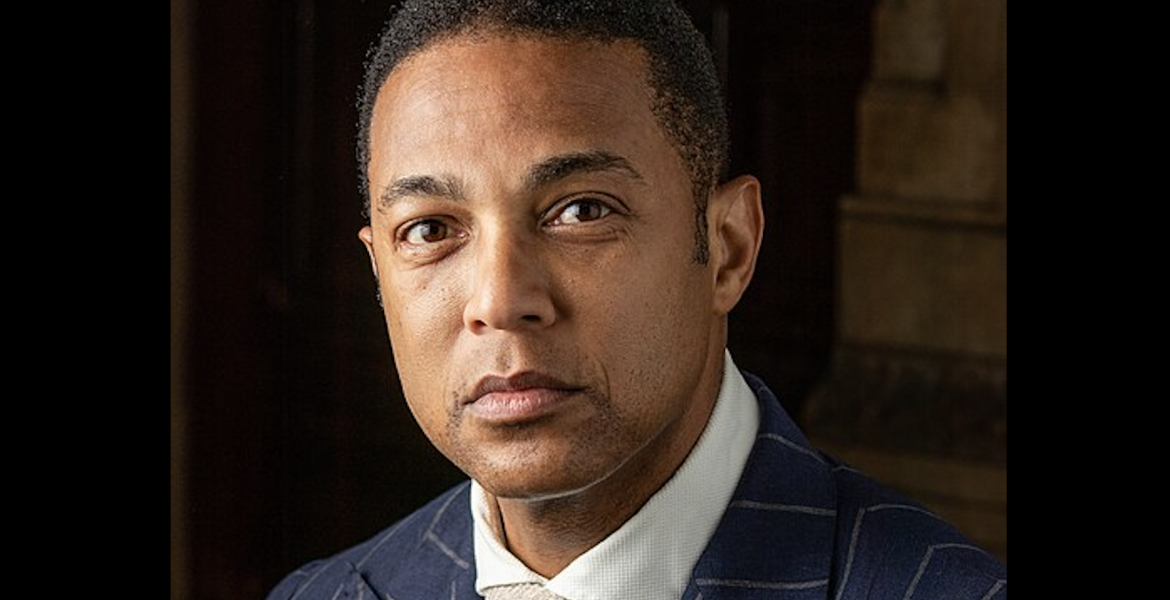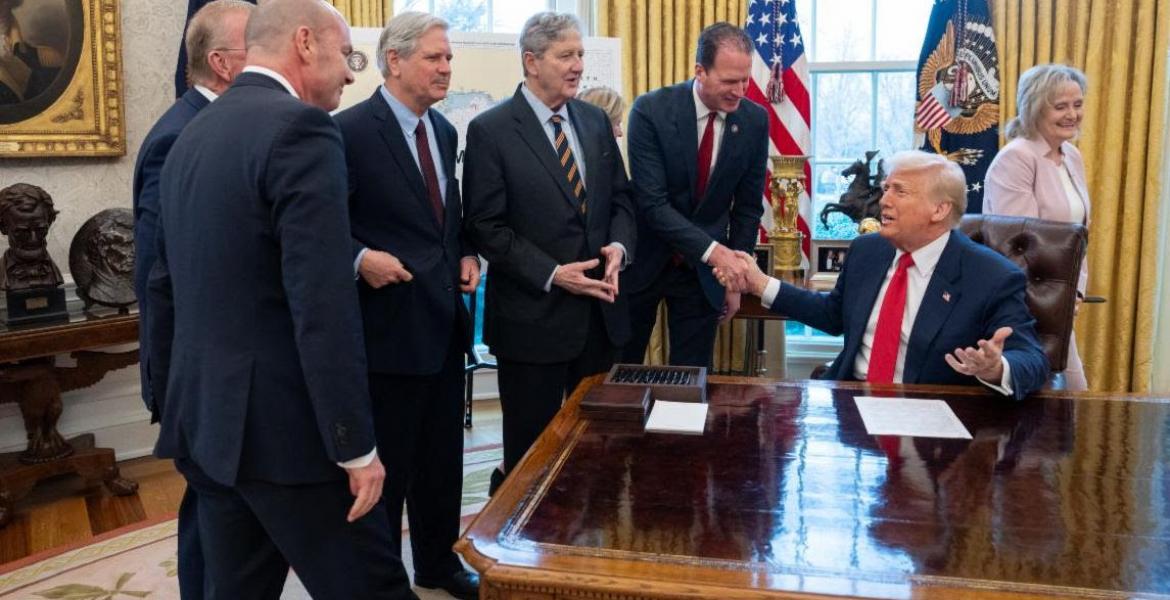As of late, the topic of police-citizen relations has been at the forefront of discussion, in the media and public arena alike. Recent high profile criminal cases, such as those of Michael Brown and Eric Garner, along with the incidents which led up to their deaths, have seemingly only fueled the uptick of anti-police sentiment across the nation.
What can be done about the "us versus them" mentality, in communities where a burgeoning mistrust of law enforcement has boiled over into strained relations, and in some instances, a looming threat of civil discord?
How may the general public gain a better awareness of the demands which our police officers face on a daily basis, and our ever-changing societal climate which they must contend with on a daily basis?
I spoke with Sgt. Cade Solesbery, of the San Angelo Police Department about these issues, and how a closer working relationship among officers and their communities can be a catalyst for improvement.
The Interview
LD: Sgt. Solsbery, how did you initially become interested in a career in law enforcement, and how long have you been with the San Angelo Police Department?
Sgt. Solsbery: I grew up in Big Lake. I first got into the Law Enforcement field by working at the Reagan County Jail in between College semesters, when the jail was short staffed. During this time I did several ride-a-longs and became interested in pursuing a career in LE.
I graduated from ASU in 2006 and was hired with the SAPD in November of 2006. Since working for the Department, I have served as a patrolman, a detective with the Criminal Investigations Division, and as a patrol supervisor. I recently transferred to the Community Services Division where I am the Sergeant and Primary Public Information Officer for the Department.
LD: Most recently, strained police-citizen relations have been in the spotlight. There's a growing number of people who feel discrimination and unfair treatment by law officials is running rampant. Whether or not many of these presumptions and resulting accusations carry any validity, some are absolutely convinced that they've been either shut out or ignored, by (as they perceive) an indifferent legal system, rife with disproportionate representation and glaring double standards.
Police officers are usually people's first line of contact, when being introduced into the legal/penal system; as a result, it's police officers who fall under some of the heaviest criticism by anyone who feels they've been handed a raw deal.
What efforts by police officers do you believe initially open the lines of communication between yourself and the public, to impart a mission of public service, rather than heavy-handed authoritarianism?
Sgt. Solsbery: Officers need to keep an open mind and positive attitude. Officers need to keep the mindset of Community Policing and remember we are here to serve our community.
Officers also need to be aware of their body language when dealing with the public. Body language can say more than words.
Lastly, in order to promote a mission of public service rather than authoritarianism, when appropriate, officers need to explore alternative solutions to problems that do not necessarily need a law enforcement reaction.
LD: During a traffic stop or a call for service, especially when a violation or arrest is imminent, tensions can run high. Most of the time, the responding officers may not know whether the subjects they're encountering are average people who've suffered a lapse in judgment, or armed and/or intoxicated felons.
One would assume, officers have to hope for the best, yet be prepared for the very worst. By any means, the manner in which an offender acts, determines how the responding officer reacts.
Would you agree with this, and while dealing with a hostile subject, what goes into determining whether diplomacy or decisive action is your best policy?
Sgt. Solsbery: I do agree with the fact that the way an offender acts determines the officer’s reaction. Also, when officers do not prepare themselves for the worst, they place themselves and everyone around him/her at risk. It could slow the reaction time an officer needs to make a decision on how to deal with a subject that could result in himself/herself getting hurt or someone around them hurt, to include the offender.
The type of call, crime, the time frame the crime was committed in, and the demeanor of the offender all come into play when an officer decides whether words alone are sufficient or other force will need to be used in order to deal with an offender.
There is no way for an officer to know how an encounter is going to go, so as many scenarios as possible needs to be planned out in the officer’s head in order to help make good, quick decisions.
LD: Police officers commonly encounter some of the worst personalities and unsavory characters our society has to offer. These types can run the gamut from rude, crass people with underhanded, ulterior motives, to the destructive and those with the propensity for senseless violent outbursts.
Do you think the amount of time spent essentially babysitting many of these unruly people, day after day, potentially establish apprehensive reflexes or a cultivated suspicion towards people in general, in some police officers over time? If so, can it become difficult, for instance, to leave the scene of a heated situation without carrying a bit of indignation with you, onto the next case?
Sgt. Solsbery: One thing to remember is that officers are human. It is difficult for any human, not just officers, to not let emotions carry over from one contact to the next. However, we as police officers understand that each situation is different and needs to be handled accordingly.
We do our best to leave those emotions from a previous call behind and not let them affect subsequent citizen contacts. We also have to remember just because we deal with many people during some of the worst times of their lives or when they have made bad decisions, to not allow ourselves to begin to distrust the public or be suspicious of everyone.
LD: In cases where police officers have had confrontations with minorities, which involved any use of force, the actions of the officers involved almost always fall under suspicion, and many times are attributed to "racial profiling".
Almost immediately, in many of these instances, the police officer in question is assumed to be in the wrong, before any factual evidence is made public.
In your experiences, is there sense of a genuine mistrust of law enforcement, particularly by people of color, or is racial profiling more often wielded as an excuse by many, to skirt responsibility for their actions?
Sgt. Solsbery: There is mistrust of law enforcement by some people in society. From my experience, I have dealt with people of all races who do not like and mistrust the police.
In my experience, socialization, how someone is raised, and decisions people make in their life impacts feelings toward police far more than race. Overall, we do not see much of this attitude in San Angelo due to, I believe, an already established positive relationship.
We communicate with the public through press releases and social media to let the citizens know what crime and events are taking place in the community. The department likes to be transparent with the public because without transparency there can be no trust.
LD: Political correctness has infected just about every aspect of daily life in this country, and law enforcement is no different.
Has "profiling" in of itself, become a bad word?
Has it become counterproductive (for instance) to admit to yourself and others, that certain people who are dressed in typical gang attire, sporting tattoos indicative of gang affiliation, justly fall under suspicion, in regards to criminal activity?
Has the fear of accusations of discrimination or unjust profiling hindered police investigations, in your experiences?
Sgt. Solsbery: Regardless of how someone is dressed, whether or not they have tattoos, are gang affiliated, or their race short of having a complainant or witness to identify an offender of a crime, police look for suspicious behavior and need to have a reasonable belief that a subject has committed or is about to commit a crime.
I have never worried about “profiling” because as long as I do things the way I’m supposed to, then it will not be an issue.
LD: We're living in a time of information overload. Cable news networks, bloggers, 24- hour news feeds; these outlets have a never-ending parade of "experts" who'll ponder and pontificate about various officer/perp related incidents which resulted in a use of force.
While there are certain guidelines which officers adhere to, would you agree that there is no perfect science, when it comes to the use of force, and the countless factors which officers must consider, sometimes within seconds of a life and death situation?
Sgt. Solsbery: I do agree. An Officer relies on all kinds of training, laws, and policies when a decision to use force is made. These decisions are split second decisions.
There are various levels of force an Officer can use from mere presence all the way to deadly force. The situation dictates what level of force is needed, and sometimes you must skip certain levels because of an escalating situation.
The “Monday Morning Quarterbacking” that takes place after a use of force event often does not include all of the facts since most facts cannot be released as they are part of an investigation. What needs to be looked at, when the information is available, is how would another officer or person react given the same situation, with the same knowledge of what is going on, and the same time frame to make a decision.
LD: Many police agencies are implementing measures to curtail negative/violent encounters between citizens and police officers, such as body cameras, sensitivity/de-escalation training and other measures to reduce the risks of an unnecessary use of force.
During your career in law enforcement, what new training or methods have you seen appropriated as behavioral safeguards, which have changed police officer's modes of operation, for better or worse?
Sgt. Solsbery: Officers receive training in crisis intervention, which deals with how to handle subjects going through a mental health issue.
Officers also receive Cultural Diversity training in order to help Officer learn more about other cultures and their customs so we can better interact with people of other cultures when we encounter them.
LD: Within the past 5 years, the DOJ has opened investigations into 20 police departments, such as calling into question various incidents of force which were used by police in Albuquerque, NM.
In NJ, the DOJ cited a “pattern and practice of taking immediate offensive action” in lieu of acting with “thick skin and patience.”
While police misconduct is a very real problem in some departments, do you believe this kind of second guessing, and Monday morning quarterbacking is indicative of a disconnect between DOJ officials and the first-hand experiences officers face on the job?
Could the incessant appeal for officers to hesitate before using force, set a dangerous precedent, possibly giving violent criminals the upper hand?
Sgt. Solsbery: As I mentioned before, sometimes the Monday morning quarterbacking is done without all of the facts. Where the DOJ is concerned they should have all the facts but it needs to be looked at from the eyes of what the officer knew and how long they had to make a decision.
Different ways of handling a situation can be easy to come up with after the fact and with more time to think about the situation. I do think if Officers hesitate in using force either because they worry about repercussions, even if they are in the right, or because some sort of hesitation is required through policy or law, then we could see a dramatic increase in officers being hurt or killed on the job. Violent criminals would definitely have the upper hand.
That being said, if there is a true issue of excessive force or misconduct, it needs to be dealt with accordingly.
LD: In 2014, the number of U.S. police officers killed on the job was up 40%. As tensions flared after the recent "use of force" cases of Michael Brown and Eric Garner, entire communities peppered throughout the nation took to the streets in the recent protests/marches, chanting "What do we want? Dead cops!".
In mid December, two NYPD officers were tragically shot and killed, execution style, for absolutely no reason.
What, in your opinion, does witnessing events such as these do to an officer's morale, knowing that simply putting on their badge and work uniform, has the potential to make them a target of violence?
Sgt. Solsbery: We, as officers, have understood the risk we take by being police officers from the beginning of our careers. We are put in dangerous situations, and we know we could be potentially hurt or killed in those types of situations.
I have not heard an officer on our department say anything about these highly-publicized events changing their minds about wanting to continue to do this job. However, it does serve as a reminder that we always need to remain vigilant and prepared in case an event such as what happened in New York happens here.
LD: There's very dangerous and violent individuals out there who have absolutely nothing to lose, and meet their end in instances which range from simple resisting (arrest), to shootouts or other attempts on the lives and well being of officers.
In many instances, these are career criminals, who've violently engaged officers during the commission of other crimes, yet the malicious intent and acts of aggression which ultimately led to their death, often seem to get lost within the subsequent pity parties of their peer groups, and in many cases, the media.
What do you think it says about the various segments within society, who view many of these volatile, habitual offenders as martyrs, and either sympathize with, or excuse away their actions, often to the detriment of the officers involved?
Sgt. Solsbery: Unfortunately, there are people like this in society. However, it is a small percentage of the population. When a person commits an act as described and it is publicized, unfortunately, on occasion, it does bring a copycat forward or people to defend their actions.
When a situation like this happens, police are often put into a position of having no choice but to act with deadly force because the offender forces that hand. When this happens, I do not feel like there is any justification on the offender’s part because they are the ones that made the decision to force the situation on Officers.
LD: Despite what many may believe, most police work doesn't resemble the quintessential action flick, high speed chases and battling it out with bad guys. The majority of police work consists of tasks such as peacekeeping, while monitoring crowd control, or order maintenance, like traffic duties after a car crash.
It's also reported that an estimated 60-80 percent of police work consists of social service, ranging from things like mediating family disputes, locating lost/runaway children, crisis intervention or giving referrals to other agencies.
Basically when someone needs immediate help of any kind, one of, if not the first people they seek out, is a police officer, and more often than not, an officer does everything in his/her power to deliver that help.
What are some of the most common (non-criminal) calls for services you've encountered? What would be an example of any unique or unusual calls, which the PD generally doesn't handle, yet you assisted in anyway, to the best of your ability?
Sgt. Solsbery: The most common call types that we respond to that are not criminal in nature are civil disturbances. These calls can range from landlord and tenant issues to child custody issues and exchanges.
I have seen Officers change flat tires, help put loose livestock back in pens, and most recently Officers assisted with removing a bicycle that was stuck around the neck of a horse.
We assist, where we can, on all call types regardless of the nature, and if we cannot help, we try to point the complainant in the right direction of who can help.
LD: A few years ago, the San Angelo Police Department implemented "sector style policing", allocating officers within four different areas of the city, to become familiar with it's respective problem areas and the needs of the communities they work in.

A bicycle around the neck of a horse, a weird call to which local police have responded.
From the very beginning, many agreed this was a very promising endeavor.
In which ways have you found this to be beneficial to the department, and it's efforts to construct a close rapport and an improved line of communication with the community?
Sgt. Solsbery: It has allowed Officers to focus on one area of the city more and the problem areas within those sectors.
By working the same area all of the time, an Officer gets to know some of the people living in their sector better. They also get to know where known criminals live or “hang out.” It also instills a feeling of sector ownership, meaning an Officer will feel more of a personal connection with a sector and want to do the most they can to help that area of town.
LD: In regards to encouraging community participation, the National Night Out events have been a great success in bringing crime prevention awareness to the forefront, but could you briefly explain how neighborhoods/businesses can become involved in efforts such as Problem Oriented Policing (POP), Crime Free Multi-Housing Program, or other means of networking with the officers within their respective sectors?
Sgt. Solsbery: The Community Services Division runs these types of programs. Blue Watch is a program in which citizens can get involved. All they need is a Facebook account. Blue watch is basically the same idea as a neighborhood watch but does not require an actual physical meeting place. Information is passed on through Facebook. It gives the citizens the opportunity to interact with a Liaison Officer from the department and report any issues or suspicious behavior within their neighborhood. Blue Watch Groups are private and potential members are risk-assessed before joining the group.
The Crime Free Multi-Housing program is a voluntary program for apartment complexes in the city. If a complex wishes to participate, the staff goes through training on the program and some paperwork must be completed by the complex. After all steps are completed, an addendum is added to the lease paperwork stating that if anyone renting an apartment commits a crime, where there is evidence the person committed the crime, then there are automatic grounds for eviction.
The Liaison Officers in the Community Services Division receive all the reports involving tenants of the complexes that participate in the program. After they go over the reports if there are any tenants that meet the criteria for eviction, the apartment complex is contacted and advised of the incident and the eviction process can begin.
There are also other events such as Coffee with a Cop where people can meet and network with Officers in their sector.
If anyone has any specific questions about any of these events or programs they can call the Community Services Division at 325-657-4331.
LD: A particular issue with neighborhoods which are significantly affected by crime, is resident's fear of possible retaliation, in an instance they report criminal activity. Many would shy away from voicing concerns, much less be seen talking to officers at their homes.
The SAPD and Crime Stoppers both offer online reporting, which can be utilized anonymously.
I believe resources such as these and programs like Blue Watch, (an extension of the traditional Neighborhood Watch) are invaluable to our city, as people's first line of defense against crime, are the eyes in ears within their own neighborhoods.
How effective are these resources in crime reduction, and what words of encouragement could you offer to anyone who's resolved to taking back their neighborhood, yet may be on the fence about taking that extra step?
Sgt. Solsbery: The people living in these types of neighborhoods have a better understanding of the problems that affect their neighborhood. They also might know who is causing those problems. They are there all the time to see things we, as Police Officers, cannot see.
This information can help solve cases or identify problem areas. Citizens can make anonymous tips to Crime Stoppers, through the San Angelo Police Department Facebook page, or through our Anonymous Tip Watch program.
Sometimes, however, there are times we cannot take action because there is not a victim that wants to come forward and file charges. There are some crimes that without a cooperative victim, our hands are tied in what enforcement actions we can take. I would encourage people who live in neighborhoods where crime is prevalent and want that to change to take that step of filing charges.
I know there is concern for some people about retaliation, but there are laws in place if that occurs. “Taking a neighborhood back” has to start with the citizens in those neighborhoods being willing to take an active role in cleaning up their neighborhood.
LD: Finally, are these any upcoming and/or new programs which the SAPD will be hosting or offering within the near future, and are there any websites or resources our readers could explore to learn more about these endeavors or other ways to become involved?
Sgt. Solsbery: On February 26, 2015 at 6:30 p.m. at St Mark Presbyterian Church located at 2506 Johnson Ave, Chief Vasquez will be a panel member along with Garland Freeze with the NAACP and Elizabeth Grindstaff with the City of San Angelo for a Community Forum dealing with race relations in our community.
As of right now we do not have any other events scheduled in the immediate future, but when we do they will be posted to the San Angelo Police Department Facebook page. You can also call 325-657-4331 to inquire about any upcoming events. We also hold a Citizen Police Academy that citizens can attend to learn more about the Police Department. A date of the next Citizens Police Academy has not been set, but we will send out the dates as soon as it is set.
Epilogue
In closing, I think some of the primary aspects of police work that can't be stressed enough, is that law enforcement is a noble and selfless service. It's carried out on a daily basis by dedicated and honorable people, who're not by any means infallible, yet do their job to the best of their abilities, as any average person would.
Most people who choose this career, have a genuine inclination to helping others, and aspirations in making a positive difference by way of their efforts.
Even as a pessimist and misanthrope, I can't help but find these traits admirable.
Since relocating to San Angelo, roughly a decade ago, I've experienced nothing short of the utmost cordiality and professionalism from our local SAPD officers and law enforcement personnel.
It's true, many PDs have their bad apples, however that could be said about any occupation or walk of life, for that matter.
Understanding the aforementioned, and taking a proactive interest in your neighborhood and community by networking with and supporting your local police department, can work wonders towards the betterment of our city.
I'd like to thank Sgt. Solsbery for his contribution in this interview, and the men and women of our SAPD.
Keep up the great work.
Subscribe to the LIVE! Daily
Required






Comments
We need more sane people like you :)
- Log in or register to post comments
PermalinkPost a comment to this article here: